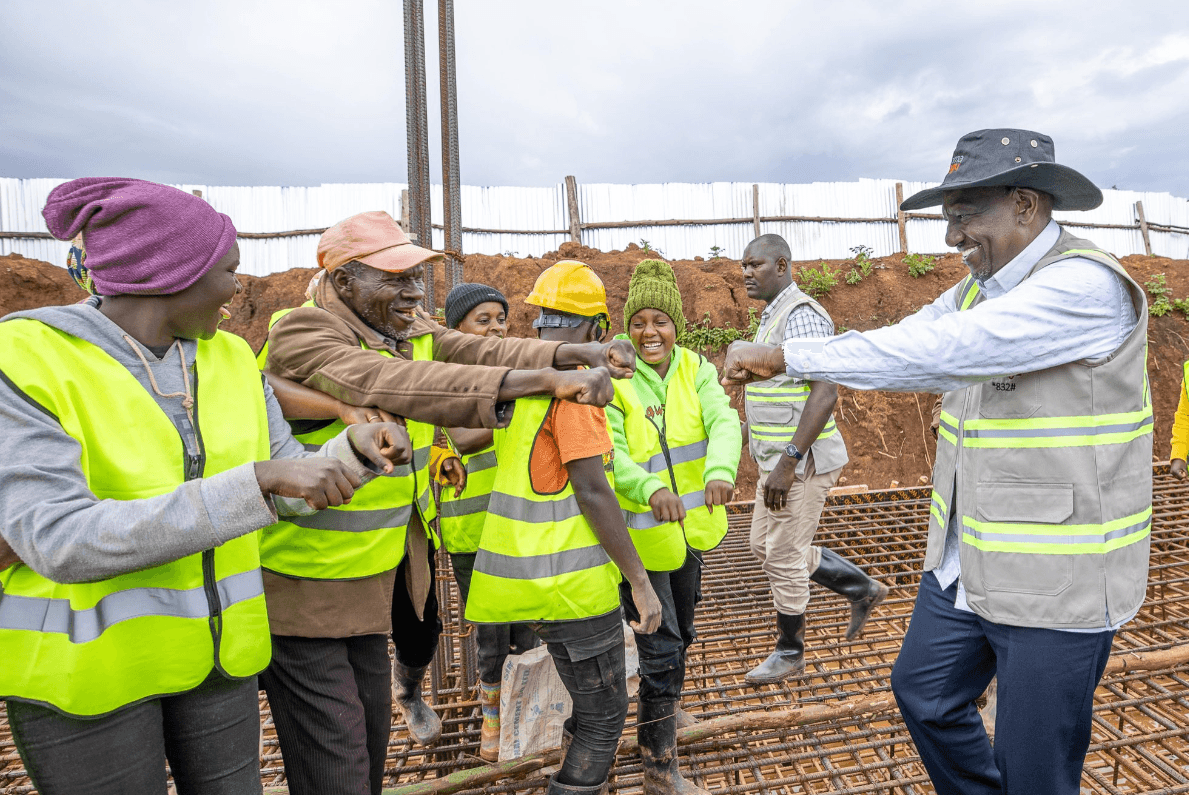Kenya, like other Africa countries, is not doing a plausible investment in medical research, including gene sequencing, leaving it at the mercy of the west in case of a medical emergency— like the recent Covid-19 pandemic.
Gene sequencing enables drug makers to ensure medicines are precise in combating disease-causing germs. It is also a central concept in vaccine manufacturing.
Illumina, an American biotechnology company, has made a name in developing, manufacturing, and marketing integrated systems for the analysis of genetic variation and biological function.
The Star spoke to Belinda Ngongo, the company's Global health director, on dynamics around genomics and how African governments, including Kenya, are doing in investing in it.
How is genomics accessible to science and medical researchers in the continent?
In recent years, genomics has become increasingly accessible across Africa, leading to a significant transformation in genomics capacity in Kenya and across the continent in a short span of time. In 2018/19, only seven countries in Africa had functional genomics capacity within their public health laboratories. Currently, that number has surged to over 45 countries, a remarkable stride attributed to the concerted efforts of various stakeholders. The AU Africa CDC genomics initiative, backed by partnerships, governmental support and contributions from the genomics industry including Illumina, has played a pivotal role in this expansion.
While this expanded capacity—primarily situated within research institutions and national public health laboratories—has been instrumental in bolstering pathogen surveillance efforts—crucial for monitoring and responding to infectious disease outbreaks—the potential of genomics extends far beyond. The same genomic infrastructure can be harnessed to address a wide array of health challenges and needs across the continent. This includes combating infectious diseases like tuberculosis, Human Immunodeficiency Virus (HIV), and malaria, as well as advancing cancer care, reproductive health and newborn screening.
Kenya exemplifies this broader application of genomics. The national public health institute utilises its genomics capacity not only for pathogen and wastewater surveillance but also for drug resistance monitoring in tuberculosis and other antimicrobial resistance.
Private healthcare facilities have embraced genomic sequencing for oncology applications, demonstrating the technology's versatility and growing accessibility. Notably, Illumina technology stands out as a prevalent force in enabling next-generation sequencing capacity across Kenya and the broader African landscape.
What does one have to do to access them for their work?
There are several avenues for accessing genomics technology in Kenya and across Africa. Researchers can collaborate with local institutions that possess existing genomics capacity, such as national public health institutes, universities, or research centres, offering opportunities for shared resources and expertise. A significant number of organisations in Kenya have invested in genomic infrastructure to advance research and public health. These organisations include the National Public Health Laboratory under the Kenya National Public Health Institute, Kemri collaborative research programmes such as Kemri CDC Kisumu and Nairobi, Kemri Wellcome Trust research programme, Kemri/US Army research Unit, Kemri/University of Nagasaki, International Livestock Research Institute (ILRI), Kenya Aids Vaccine Institute of Clinical Research (KAVI) University of Nairobi, Aga Khan Hospital.
Alternatively, organisations with sufficient capacity and demand may also choose to invest in their own genomic sequencing. Furthermore, service providers and core laboratories such as Africa Genomics Centre (TAGCC) specialising in genome sequencing offer a valuable option for outsourcing specific analyses or projects.
What are the duty-of-care obligations for handlers of the genomics resources while conducting their research?
Handlers of genomics resources bear a multi-faceted duty of care obligations throughout their research endeavours. They are responsible for the ethical and responsible use of genomic data, ensuring the privacy and confidentiality of individuals involved are strictly maintained. This includes obtaining informed consent, anonymising data where appropriate, and adhering to data protection regulations.
Additionally, researchers have an obligation to advance scientific knowledge and contribute to the public good through responsible data sharing, collaboration with peers, and timely dissemination of findings to promote informed decision-making.
Transparency and accountability are also crucial, requiring researchers to be open about methodologies, funding, and potential conflicts of interest. Finally, active engagement with stakeholders, including research participants, patients, communities, policymakers, and the public, ensures that genomics research is conducted ethically, responsibly, and in alignment with societal needs and concerns.
What is the state of medical and biomedical research in the continent? The premise of this question is that most of the researchers are mostly out of the continent.
The state of medical and biomedical research in Africa is a complex and evolving landscape and genomics is emerging as a key area of focus. The expansion of genomic sequencing capacity across the continent is enabling research into infectious diseases, cancer, and other health priorities specific to African populations. While it's true that some African researchers conduct their work abroad, there's a growing movement and recognition of the importance to cultivate and maintain research capacity within Africa's borders.
One key aspect that we emphasise at Illumina in Africa is the imperative to analyse African samples locally, fostering the development of sustainable genomics infrastructure on the continent. To support this, governments must prioritise strengthening material transfer agreements, such as the Nagoya Protocol, ensuring the ethical and legal movement of samples.
Additionally, efforts to streamline taxation policies, customs regulations, and regional standards, such as those within the East African Community, can further enhance the importation and distribution of healthcare commodities, including genomic technologies, creating an enabling environment for robust genomics work to be done in Africa.
What is the funding status of medical research by African governments? How is Kenya, in particular, doing in this respect?
Despite a commitment made by African Union member states 17 years ago to allocate one per cent of their GDP to research, the continent's actual investment stands at a meagre 0.42 per cent. This figure is way below the global average expenditure on R&D, which stands at 1.7 per cent.
Much of medical research funding in Kenya comes from various external sources, including international non-governmental organisations, bilateral and multilateral aid agencies, international research collaborations, and philanthropic foundations.
Genomes play a crucial role in vaccine manufacturing; How does your entity help in ensuring Africa has capacity to manufacture vaccines in readiness for the next pandemic?
Illumina has been supporting the continent to ensure equitable access to genomic sequencing technologies, in particular next generation sequencing. This programme provides a toolbox of applications in infectious disease. From discovery to assay development for surveillance monitoring and clinical assay development and finally drug and vaccine development.
In 2020, the Africa Pathogen Genomics (Africa PGI) Initiative was launched with the aim to enhance disease surveillance and public health. Illumina is collaborating with the Africa CDC and has donated over $12 million of in-kind contributions including sequencing systems, reagents, and training to Africa.
Early this year, Illumina launched the Global Health Access Initiative to better equip countries to perform pathogen sequencing locally. The programme facilitates access to sequencing products from Illumina at discounted pricing and expands capabilities among low- and middle - income countries across a range of sequencing applications.












